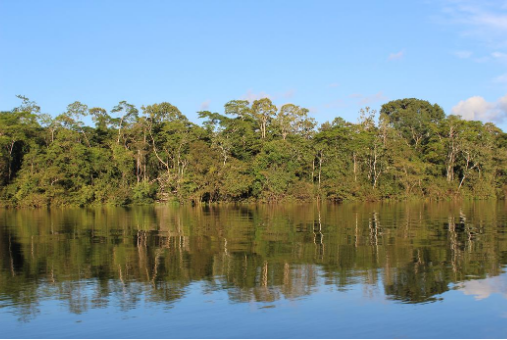
Journalists working in the Amazon now have a new fund at their disposal to help realize coverage of the region thanks in part to the initiative of reporters working in the area.
They got to work securing transmitter antenna and covering the windows of their newsrooms with plywood. Enough food and water were purchased to last for several days. Volunteers were called in to relieve exhausted employees when the time came that they couldn’t stay awake any longer, or had to attend to their own families and homes.
Oil spills in the Amazon, indigenous peoples fighting for their native territories, protected areas threatened by oil drilling and illegal mining activity, the great impact of livestock farming on the forests of protected areas and natural disasters were the most popular issues for readers of digital site Mongabay-Latinomérica in its first year.
Six months ago, 50 million tons of toxic waste was spilled into the Doce River from an iron ore mine in the city of Mariana in "the worst environmental disaster Brazil has ever seen," as qualified by President Dilma Rouseff, according to DW. The spill killed 19 people and destroyed the Bento Rodrigues district in the state of Minas Gerais.
Three journalists were ejected from a Brazilian construction site where indigenous protesters have paralyzed work on a dam in the Brazilian state of Pará on Friday, May 3, 2013 World Press Freedom Day.
On Tuesday, Aug. 28, a news team from the newspaper El Nacional was detained by Venezuelan National Guard officials while trying to report on a large fire in the oil refinery of Amuay, in the state of Falcón, reported El Nacional.
Three journalists and a photographer were detained on Wednesday, Aug. 15, after covering an oil spill in the city of Freites, in the state of Anzoátegui, in Venezuela, reported the site La Patilla.
The same project that caused Brazilian journalist Lúcio Flávio Pinto to be sentenced to pay moral damages also made him the winner of the 34th edition of the Vladimir Herzog Amnesty and Human Rights Award, reported the news site Ambiente Já. His journalistic work in the Amazon has led to more than 33 lawsuits against him, as well as many awards, such as four Esso awards, which are the most important awards for journalism in Brazil.
There is already enough public data available to follow the destruction process of the largest rainforest in the world, but what is missing is a way to aggregate all of the available information and make it easier for the public to understand what is happening to the Amazon. As such, Brazilian journalist Gustavo Faleiros, winner of the Knight International Journalism Fellowship, a scholarship program led by the International Center For Journalists (ICFJ), has designed a project to improve the free flow of information and news.
Various Venezuelan press associations issued statements criticizing the court decision that ordered the media to publish a technical report supplying evidence for previous stories published about water contamination in the central region of the country.
Lúcio Flávio Pinto, four-time winner of Brazil's most important journalism award, the Esso, said he would no longer appeal the libel lawsuit in which he was sentenced to pay roughly $4,600 in moral damages for articles accusing the owner of a company of landgrabbing in Pará, a region in northern Brazil, according to the newspaper Estado de S. Paulo.
While trying to cover anti-mining protests in the province of Catamarca in Argentina, journalists were denied access to the area, showing a deterioration in freedom of expression, said the Argentine Journalism Forum (FOPEA in Spanish). FOPEA also said that several protesters and journalists were detained and harassed.